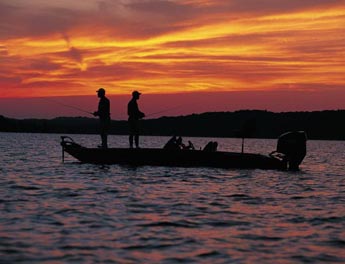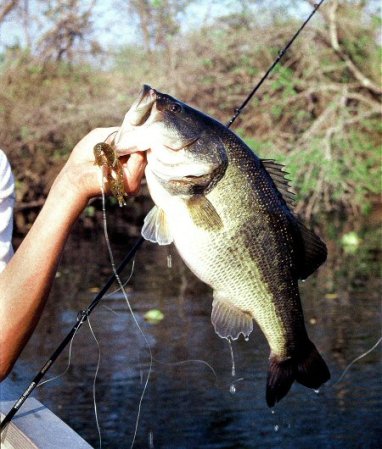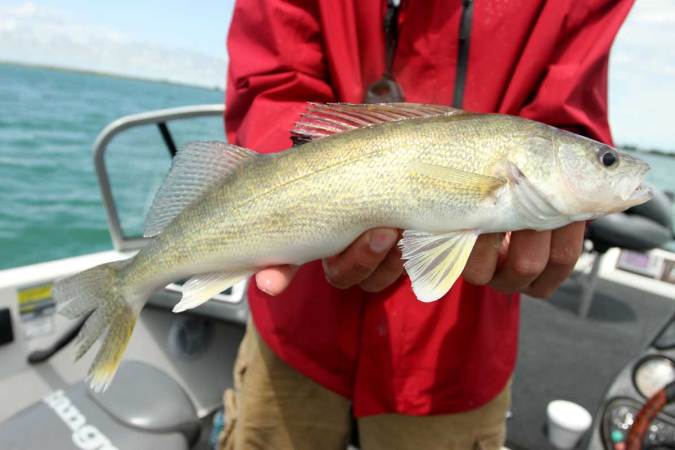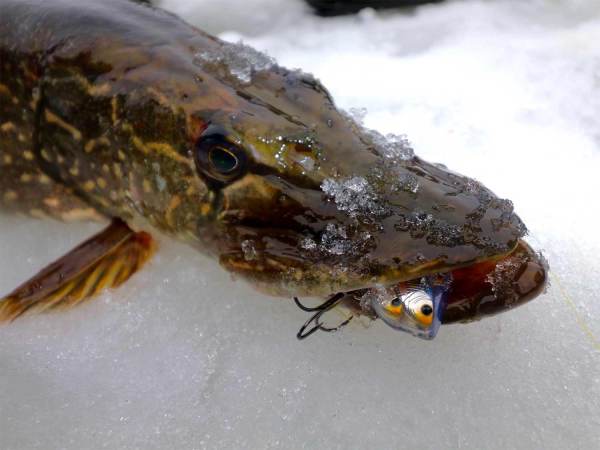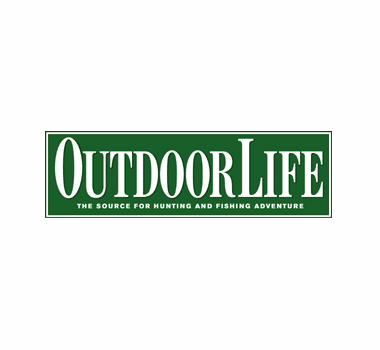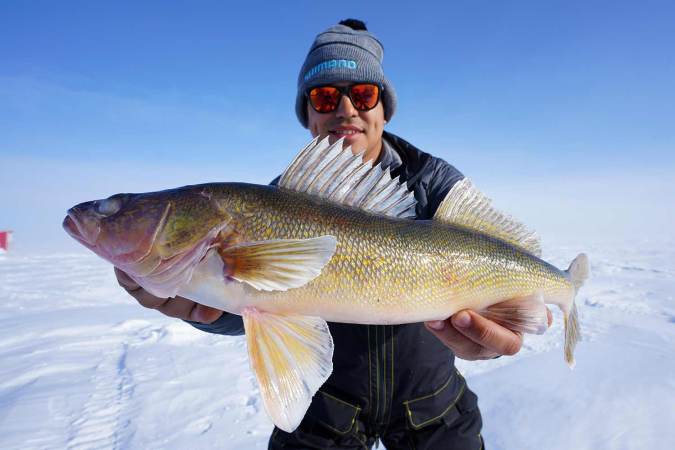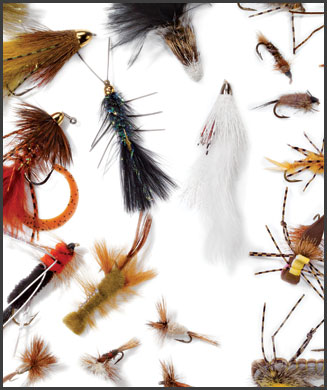Since its discovery in ancient times, lead has ridden a roller coaster of praise and damnation. Though the Romans were well aware of the metal’s hazards during manufacture, they continued to use it for water pipes and eating and drinking utensils.
Accumulated lead poisoning is the generally accepted explanation for the aging empire’s physically and mentally degenerate patrician class.
Lately, lead sinkers have become the whipping boy of detractors bent on identifying a single villain for the poisoning of waterfowl, specifically loons. This blame comes despite a National Wildlife Health Research Center study-the largest of its kind-that concluded that only 27 birds of 37,000 examined in necropsies had ingested lead sinkers while feeding.
Nevertheless, several states have banned the sale or use of lead sinkers (usually of split-shot size or on specific waters) and there has been a decided push to make sinkers of other materials. Most anglers are willing to bite the non-toxic bullet if it means any benefit to wildlife and the environment at all, but they want to know how these new sinker materials compare with lead. Here are some answers.
Lead Replacements
Sinkers are now being produced in a variety of alternative materials: steel, bismuth, tin, tungsten, brass, glass, ceramic, polymer/metal composites, thermoplastics and granite-the last attached via Velcro and bobber stops.
Metals receiving the most attention these days include bismuth, brass, steel and tungsten. Bullet Weights, Water Gremlin and Angler Sport Group offer split-shot renditions in tin, which is slightly lighter and less dense than steel. Hildebrandt was the first to make spinnerbait heads of tin, and now uses it or bismuth exclusively in all its lures. Water Gremlin also turned to bismuth when it launched a new line of fishing weights.
Following is a list of the alternative weight materials being used now. Bismuth: Its low melting point makes bismuth nicely pliable. Only slightly less dense than lead, bismuth is brittle-Water Gremlin shrink-wraps its weights to avoid breakage should a sinker fracture when slammed against a rock. This is expensive stuff.
[pagebreak] Brass: Less dense than lead, brass contains a minuscule amount of lead that does not leach into water. Its color is likely attractive to fish in some conditions. The cost is in the mid-range.
Steel: Far less dense than lead, steel is available in many shapes. It’s fairly porous and it holds paint or scents well (for example, Perma Scent in Bullet Weights). Steel makes a real racket when used with a bead or clicker in a Carolina rig. In non-stainless form, it can oxidize, but some anglers lacquer-coat steel weights or place a penny as a sacrificial anode in a tackle box. The price is equivalent to that of lead.
Tin: Less dense even than steel, tin is soft, is easily formed and can be reworked and reused for various fishing tasks. Tin produces less noise on clicker rigs. It’s also very economical.
Tungsten: Far denser than lead, tungsten has the best sink rate. It’s the hardest metal listed here and has great sensitivity. Tungsten is difficult to mold, which is why some weights contain more of other materials (such as lead in spinnerbaits and jigheads). Fewer shapes are available. Tungsten is the most expensive sinker material.
Density Matters
The density of different materials is of vital concern to anglers because it relates both to the size of a sinker (or jighead) and its sink rate. Consider that a less dense sinker requires a larger profile to reach the same weight and sink rate as lead. To get a handle on how all this affects performance, we contacted Florida engineer Dick Murray. He created a slew of equations that resulted in a head-to-head comparison of size and sink rates for weights made of different materials compared to lead. The tle on the previous page is exclusive to Outdoor Life and applies to any family of sinker shapes.
In practical fishing applications, sink-rate performance of different materials will be most apparent in deeper water and with heavier weight sizes, and far less noticeable in shallow situations. The table is based on absolute numbers. After weighing different brands of sinkers on my reloading scale, I found that the labeled weights of some often erred on the light side by a few grains.
[pagebreak] Good to Know
Murray discovered that when a cone-shaped sinker’s height is greater than twice the diameter of its base, it will sink faster than a split shot of the same weight. The reverse is true if the cone’s height is less than twice the diameter of its base.
Tungsten, steel and brass will produce more sound effects when used with clickers or beads. Until now, painted finishes on tungsten weights chipped off, but Bass Boys’ Tru- Tungsten now comes with fast colors.
Down the road we’re sure to see more innovative uses of these materials. Technology never stands still, even regarding something as seemingly simple as a fishing weight.
Go to www.outdoorlife.com for a list of manufacturers producing lead- alternative sinkers and lures, a list of states with lead restrictions and further technical information.
Lead-free alternatives: Manufacturers and retailers
Ambush Lures | www.ambushlures.com
“Scented Polymer Matrix” non-toxic weights are made from densified plastic.
Bass Pro Shops | www.basspro-shops.com
Search their web site for “XPS” and “Excalibur” weights (tungsten), “Ultra Steel 2000,” and “Sticky Weight” tungsten putty. New for 2004 are the “Lake Fork” tungsten jigs, ” Gremlin Green “bismuth worm sinkers,” and “Safe-Sink” densified plastic worm weights.
A Better Angle Inc. | www.tackledeals.com
The patented “Ecosinks” are adjustable-weight, snagless fishing weights made with steel balls and cotton sleeves.
Bullet Weights | www.bulletweights.com
Alternative terminal tackle products including “Ultra Steel” sinkers and interchangeable jigs, and split shot made from tin.
Flambeau | 2004 Catalog (200Kb)
New “Safe-Sink” weights, made from a proprietary plastic material with tungsten, in bullet and egg sinker designs.
GlowOptics | www.glowoptics.com
Luminescent jig heads made from hand-blown glass. Available in Minnesota from Vados Bait & Tackle (Fridley), Thorne Bros (Fridley), Capras (Blaine), Joe’s Sporting Goods (St. Paul ) and Sportsmen’s Warehouse (Coon Rapids).
Havoc Fishing Products | www.fishhavoc.com
Products marketed as environmentally safe using a bismuth-tin alloy.
Jackfish Lures | www.jackfishlures.com
Jigs and sinkers made of bismuth.
Lake Fork Tackle | www.lakeforktackle.com/weights.htm
The “Mega-Weights” line features worm weights and barrel weights made from a tungsten-nickel alloy.
Lead Masters | www.theoriginalstickyweight.com
The “Sticky Weight” is a nontoxic, moldable tungsten putty.
Loon Outdoors | www.loonoutdoors.com/sinkets.html
The “Deep Soft Weight” (1 oz.) is made from tungsten.
[pagebreak] Lucky Strike Bait Works Ltd. | www.luckystrikebaitworks.com
Jigs, jig heads, sinkers, and split-shot made from non-toxic bismuth and tin.
Orvis www.orvis.com
Tungsten beads, putty weights.
PRADCO Outdoor Brands | www.lurenet.com
“Excalibur” series of barrel and line weights made from tungsten.
Rocky Ledge Bass Tackle | www.rockyledge.com
Spinnerbaits, buzzbaits, and jigs made from pewter.
Warrior Sporting Goods | www.warriorsg.com
“Duck Crossing” line of tin jigs and weights in over 220 styles and sizes.
Water Gremlin | www.watergremlin.com
Since the early 1990s, this Minnesota tackle manufacturer has been marketing “Gremlin Green” tin split shot. A new line of bismuth tackle is now available in the teardrop-shaped Dipsy Swivel, egg, and bullet-shaped slip sinker styles.
Suppliers to tackle manufacturers
Du-Co Ceramics | www.ceramics.com/duco/
Jigs and sinkers made from ceramic. Call Nick Norante, 724-352-1511, for product information or becoming a distributor.
Ecomass | www.ecomass.com
Ecomass is a non-toxic polymer-metal composite with the same density as lead which can be molded into fishing weights and lures.
RTP Company | www.rtpcompany.com
Manufactures lead-free high gravity thermoplastics for terminal tackle and ammunition manufacturers.
CANADA
* Supplier of alternative metals
Alchemy Castings
563 Kenilworth Ave. N., Unit A
Hamilton, Ontario L8H 4T8
Phone: (905) 312-9084
Fax: (905) 312-9085
TOLL FREE: (866) 312-9084
BICOM GEAR
distributed by: https://fishinontario.com/messages/6235.html// Bismuth Baits
606-8575 Riverside Dr.E
Windsor, ONT N8S 1G2
Fax: (519) 948-6561
[pagebreak] D&D; Lures
Windsor, Ontario
bismuth and tin sinkers and jigs
Tel.: (519) 256-8073
JackFish Lures Non-Toxic Tackle Company
Edmonton Alberta
bismuth sinkers, jigs and spinner baits
Tel/Fax: (780) 424-2876
Jr’s Environmental Friendly Clay Sinkers
Collingwood, Ontario
clay sinkers
Tel.: (705) 428-6555
Lucky Strike Bait Works
Peterborough, Ontario
tin sinkers and bismuth jigs
Tel.: (705) 743-3849
Sourdough Bay Fishing Supplies
Medicine Hat, Alberta
bismuth sinkers and jigs
Tel.: (403) 528-4801
Tucker Tackle Canada
weight forward bismuth/tin spinner baits
Phone/Fax (519) 293-3824
E-mail: tuckertacklecanada@isp.ca
INTERNATIONAL
BRITAIN Dinsmores tin sinkers Tel.: (215) 886-7211 SWEDEN Eco Weight Stockholm, Sweden magnetite/concrete sinkers Tel.: +46(0)8 775 0081 China Jinju Powder Metallurgy Co., Ltd. 798 Jiangcheng Rd, hangzhou, China Tel.: +86-571-87825090 Fax: +86-571-87827590 E-mail: sales@topmim.com
[pagebreak] ** GETTING OUT THE LEAD**
State, Federal, International Laws on Lead Sinkers
Massachusetts
Most lead sinkers are prohibited in Quabbin and Wachusett Reservoirs. Lead jigs, lines, down-rigger weights, trolling keel sinkers, weighted flies, torpedo casting and trolling sinkers, are not prohibited.
Maine
Sale of lead sinkers weighing less than one-half ounce is banned
New Hampshire
Lead semlin.com
Since the early 1990s, this Minnesota tackle manufacturer has been marketing “Gremlin Green” tin split shot. A new line of bismuth tackle is now available in the teardrop-shaped Dipsy Swivel, egg, and bullet-shaped slip sinker styles.
Suppliers to tackle manufacturers
Du-Co Ceramics | www.ceramics.com/duco/
Jigs and sinkers made from ceramic. Call Nick Norante, 724-352-1511, for product information or becoming a distributor.
Ecomass | www.ecomass.com
Ecomass is a non-toxic polymer-metal composite with the same density as lead which can be molded into fishing weights and lures.
RTP Company | www.rtpcompany.com
Manufactures lead-free high gravity thermoplastics for terminal tackle and ammunition manufacturers.
CANADA
* Supplier of alternative metals
Alchemy Castings
563 Kenilworth Ave. N., Unit A
Hamilton, Ontario L8H 4T8
Phone: (905) 312-9084
Fax: (905) 312-9085
TOLL FREE: (866) 312-9084
BICOM GEAR
distributed by: https://fishinontario.com/messages/6235.html// Bismuth Baits
606-8575 Riverside Dr.E
Windsor, ONT N8S 1G2
Fax: (519) 948-6561
[pagebreak] D&D; Lures
Windsor, Ontario
bismuth and tin sinkers and jigs
Tel.: (519) 256-8073
JackFish Lures Non-Toxic Tackle Company
Edmonton Alberta
bismuth sinkers, jigs and spinner baits
Tel/Fax: (780) 424-2876
Jr’s Environmental Friendly Clay Sinkers
Collingwood, Ontario
clay sinkers
Tel.: (705) 428-6555
Lucky Strike Bait Works
Peterborough, Ontario
tin sinkers and bismuth jigs
Tel.: (705) 743-3849
Sourdough Bay Fishing Supplies
Medicine Hat, Alberta
bismuth sinkers and jigs
Tel.: (403) 528-4801
Tucker Tackle Canada
weight forward bismuth/tin spinner baits
Phone/Fax (519) 293-3824
E-mail: tuckertacklecanada@isp.ca
INTERNATIONAL
BRITAIN Dinsmores tin sinkers Tel.: (215) 886-7211 SWEDEN Eco Weight Stockholm, Sweden magnetite/concrete sinkers Tel.: +46(0)8 775 0081 China Jinju Powder Metallurgy Co., Ltd. 798 Jiangcheng Rd, hangzhou, China Tel.: +86-571-87825090 Fax: +86-571-87827590 E-mail: sales@topmim.com
[pagebreak] ** GETTING OUT THE LEAD**
State, Federal, International Laws on Lead Sinkers
Massachusetts
Most lead sinkers are prohibited in Quabbin and Wachusett Reservoirs. Lead jigs, lines, down-rigger weights, trolling keel sinkers, weighted flies, torpedo casting and trolling sinkers, are not prohibited.
Maine
Sale of lead sinkers weighing less than one-half ounce is banned
New Hampshire
Lead s
